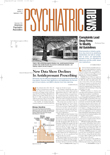APA wants to help candidates for certification by the American Board of Psychiatry and Neurology prepare for their exams, especially when it's not the candidate's first try.
Next month APA will sponsor for the second consecutive year a pilot project to help candidates who have failed the oral examination component of the psychiatry board certification exam more than once. The project allows candidates the opportunity to take an oral test similar to that offered in the board certification exam—including a live patient interview and oral presentation—in front of “examiners” who have served as examiners during the real thing.
Candidates taking the pilot-project test will be told whether they pass or fail and— most importantly—if they fail, they are told why they did so.
Deborah Hales, M.D., director of APA's Department of Education and Career Development, said that the APA program does not include remediation strategies. Candidates are encouraged, however, to use the information that examiners give them to prepare for the real certification examination.
But Hales said that information can be crucial, providing a kind of“ looking glass” for candidates to polish the blemishes in their performance when it comes time for the real thing, an ordeal that is typically fraught with anxiety.
Of the 24 candidates who took part in the pilot project last year—all of whom had failed the oral examination more than once—half went on to pass the board and receive their certification.
Next month's “test” will take place on Saturday, October 29, at the State University of New York, Downstate Medical Center in Brooklyn.
Hales told Psychiatric News that data from the American Board of Psychiatry and Neurology indicate that the failure rate on the Part II oral exam rate is high—as much as 50 percent. And it appears that candidates who fail the exam more than once are at high risk of failing it multiple times. Moreover, many of those are candidates who had received passing grades from board-review courses. Thus, a secondary objective of the APA project is to begin to gather data on factors that may make it likely that people will fail the exam.
From the first pilot project it appears that a prominent reason is simple anxiety. “Some people become so anxious that they become disorganized,” Hales said. “They aren't able to give a coherent presentation.”
The oral component consists of a half-hour interview and assessment of a patient—a real one, not an actor—and a half-hour presentation before an examiner during which the candidate discusses the patient's case.
Hales said a particularly bad omen during the exam is the candidate's failure to establish a relationship with the patient—but, she added, that is not typically what happens to candidates who fail repeatedly. Rather, it is more likely to be a matter of disorganization during the presentation.
“It's a very anxiety-producing situation for almost everyone,” Hales said.
She added that residency program directors are typically more than happy to help their residents prepare for the board exam. And she noted that the Accreditation Council for Graduate Medical Education looks at how many residents pass the boards as one measure in the accreditation process.
The pilot-project exam costs $800, which goes to cover APA's costs. Hales said it is an investment in the education of tomorrow's psychiatrists.
“We are always looking for ways to increase APA's value to members,” she said. “We are concerned with the education of psychiatrists at every level, and helping candidates overcome their difficulties with the board exam is one way APA can be of service to members.”
Those interested in applying for the project should contact Nancy Delanoche by e-mail at [email protected] or phone at (703) 907-8663. The application can be downloaded at<www.psych.org/edu/res_fellows/program/pilot.cfm>.▪
